To encourage dialogue and reflection to keep learning on the forefront of our minds, our question for the week is: What are your hopes for the end of this school year? How do you want to grow as a learner? Compass of Learning (Week of 4/21/24) (This is an anonymous Google Form)
Blake's Guiding Lights
Our Students
Blake's Core Values: Respect, Responsibility, Resourcefulness, Reflection
Our Essential Question: How can we cultivate and curate the progression of student learning and growth?
Our Mission: Blake Middle School believes in a living mission statement, based on the concept that our community seeks and respects knowledge, integrity, character, wisdom, and the willingness to adapt to a continually evolving world.
The most important attitude that can be formed is that of desire to go on learning. - John Dewey
You cannot teach today the same way you did yesterday to prepare students for tomorrow. - John Dewey
As we now embark on the ‘last stretch’ of the school year, I hope that the vacation week was restorative, relaxing, and restful. Although some of the sicknesses caught up to some of us in our family, we did our best to make the most of the time - walks with the dogs, yoga, gardening, and reading. Grayden went off on his 8th grade trip to D.C. at the end of the break, and it was fun hearing about the trip as we look forward to our upcoming Blake excursion!
DLD Leadership Panel - April, 2023
Prompts…
- Introduce yourself and share your ‘current burning fire’? (What’s in your inbox?)
- What is the purpose of public school? How are we doing with this purpose?
- How does AI impact your answer to this question?
- How can/will/should AI help us move the proverbial needle - shifting practices?
- How do you see AI impacting our systems of feedback? (standardized testing, grades and tests, portrait of a graduate, exit tickets, etc.)
- Leave us with hope - what should we be hopeful about? What gives you hope?
- What is it that educators want and need? Are they connected?
- Hiring and retaining teachers is critical
- Are student profiles changing?
- Politicization of Schools
- ‘Kids from yesteryear are gone…and they are not returning’
- No more ‘good old days’ in education
- Kids have been rewired; teachers are struggling
- How can we help our teachers feel empowered?
- Purpose of public school
- Prepare young people as innovators beyond high school
- For students to learn how to care
- Participate in democracy; Grow citizens in a democracy
- Give them experiences
- Grow capacity for moral reasoning
- Distinguish between ‘moral reasoning’ and ‘moralizing’
- Provide opportunities
- Place for all students - need to welcome all kids
- Impacts of AI…
- Pushes us to ‘prepare for anything’
- What do we do with writing?
- Think divergently and convergently
- Can AI do this?
- Nuance is missing - we want to keep a sense of wonder
- Efficiency can increase
- Hopefully provide more opportunities and doors to open
- Will it allow us to ‘go deeper’?
- Quickly generate feedback cycles
- Feedback currently often takes too long
- What are the fundamental questions for educators that AI presents?
- We have to let kids grow and play
- Public schools often seen and viewed as the ‘last institution standing’
- We are doing a number of things right
- We need nuance and creativity
- We need to engage with communities; engage others in partnerships
- What gives us hope…
- We are resilient (kids, adults, families)
- Promise/courage of democracy
- Kids give us joy
- We can do this hard work
- We are wrestling with complex, important ideas
- Schools can help others
- Kids care
- We need connections and schools can do this
Classroom Stream Responses from March Faculty Meeting
What are you hopeful about? How can we provide and foster hope for our students?
- I am hopeful that we will figure this all out; balance of work and home/balance between tech and human/ balance between social media and reality…it just takes time and cultural shifts.
- I am hopeful about the life skills we teach students on a daily basis. We can provide and foster hope for our students by continuing to teach and model life skills.
- I am hopeful that the trauma of the pandemic years and relative fall-out will be a bonding point for a strong generation of students. I am hopeful that student can come to school without fear of safety from the external community. I am hopeful that each student will surprise themselves with a new idea worthy of their time and interest.
- The immeasurable amount that the staff in this building care about students gives me hope.
- Witnessing kindness and compassion makes me hopeful. Having empathy for our students, while still providing accountability and high expectations, can foster hope.
- I am grateful that I work in a place and with colleagues who are open to growing and changing, adapting, trying new approaches. This gives me hope for what we do, our effectiveness, impact. I think fostering hope for students is directly connected to inclusivity, creating that place of safe growth.
- I am hopeful that our community will continue to rise to each occasion/situation with the same strength and dignity that we so often do.
- I'm hopeful about kids. Kids - and their ability to adapt/change/evolve - they rise to any challenge and I see our society becoming a more accepting, more just, and a more loving place/space to live because of them.
- I am hopeful about the brightness and kindness that radiates from the gift of a new day which welcomes new beginnings and opportunities for continuous growth! We can provide and foster hope by offering them the power of yet and providing them with the opportunities to make mistakes and know that they are learning and growing and that they are believed in consistently and continuously.
- Hopeful about working each year to improve my skills at the art of teaching.
- We can foster hope in our students by being hopeful ourselves - sharing our joys and excitement for our students' successes, for our content areas, as well as outside interests.
- I am hopeful about young people - they truly are the future and I am hopeful knowing that they have so much depth of being - I have to trust that with the right support, guidance, and relationships they will continue to ask and seek answers to challenges that face them.
- Try and focus on the positive and show enthusiasm. Some days it's harder than others but I do think they look to us for stability and guidance. For those who know Dr. Becky (Good Inside Book/Podcast) I like her idea about being a "sturdy leader."
At the end of April vacation in 2019 (Conditions for Learning), I employed a framework that was intended to be a ‘productive means to create space for intentional reflection with an action-oriented eye to find context for our work at Blake’...
In an effort to ‘practice what I preach’, for the last few years I have dedicated ‘space’ as April vacation concludes to reflect via an intentional structure to foster discourse, reflection, learning, and growth. I hope the structure provides a ‘window’ into some current thinking, while also providing a structure to examine both our conditions and practices with an eye towards improvement...
- Mirroring and sharing responses from the most recent question of the week
- Re-sharing my resolutions/intentions for this calendar year (please keep me honest and on track)
- Sharing some posts that held meaning as of late with mindsets that I hope will carry me forward
- An annual request for all of us to not 'count the days', stay focused, and enjoy our time with the students
- Elicit some feedback and reflective thoughts from staff
Justin Reich’s advice is a part of this intentional reflection, encouraging all of us to have and employ a…
‘High internal locus of control as a teacher; recognize and have a low internal locus of control as a citizen’
As one who has a tendency to ‘take it all on’, this is admittedly a real challenge for me and holds me accountable for outlining ‘next steps’. The different sharings have common threads - and, once again, I find myself leaning on learning, hope, and belonging. All of these are core compass points in the service of our students. I welcome thoughts, dialogue, questions, and processing from all - truly.
Sampling of Responses from Last Week’s ‘Question of the Week’: What inspires you and gives you hope? Why?
- I am inspired by the people around me!
- I am inspired by the people around me
- My mom, and her love
- My parents inspire me and give me hope because they both run their own business together but always have time for me and my siblings. They inspire me to want the life they have of family time and life of enjoyment.
- My parents inspire me and give me hope. I know this because I know that they believe in me
- My family and good people who do good things
- My dogs give me hope because they inspire me to do my best everyday because they do and have no problem at all.
- My dad because he is athletic and successful
Intentions for the 2024 calendar year
- #slowingitdown with intentional time for self-reflection, mindfulness, and growth
- Practice #willfulaction with #willfulhope
- Lead with flexibility, understanding, and grace
- Align beliefs with practice (hope with action) in the realms of anti-racism, social justice, equity, diversity, belonging, and inclusion (personal, professional, leadership)
- Listen to understand rather than listen to respond
- Embrace and model authenticity and vulnerability
- Explore ways to 'go deeper' and find more meaning
- Think about ways to connect more directly with students (focus groups, check-ins, discussions)
- Broaden and redefine some methods of leading, sharing, and growing (networking, connecting, collaborating) within Blake, Medfield, and beyond
Some posts/podcasts that resonate…
Teen Behavior, Explained by a Neuroscientist
by Julie Rafferty in Tufts Now
Teenagers are known for their sometimes-unpredictable behavior. One moment they’re mature and clear-thinking, and the next they’re irrational or engaging in risky behavior. Neurologically speaking, they can’t help it, though that’s probably of little comfort to parents’ frayed nerves. Still, it might help to understand that scientists theorize that three interconnected processes of adolescent brain development are the culprit.
During adolescence, teens are more likely to react impulsively because subcortical structures such as the amygdala have matured while the prefrontal cortex is still developing. The connections between the frontal cortex and the amygdala and related regions of the brain also are not yet fully formed.
While we hope that most teenagers make it to adulthood without major problems, families, schools, and increasingly the courts, are recognizing that “adolescence is a vulnerable period of brain development,” she concludes.
GPTd on Arrival: A New Paradigm for Understanding Education Technologies
by Justin Reich
Generative AI was not adopted; it arrived.
...generative AI represents a step change in both the velocity and nature of technology arrival. In less than a year, nearly every internet-connected computing device suddenly had access to dramatic new capacities.
How to Help Students Focus on Learning Instead of Their Grades
by Michael Fisher in Greater Good Magazine
Most educators readily acknowledge that grades are not the most important upshot of learning. But for various reasons, many parents and teachers of adolescents in particular find themselves harping on grades as the rationale for doing nearly everything in school. Too often, we fail to see this message from students’ perspective: the constant pressure it sends to complete assignments and learn things just to forget them later; the obsessive worry it creates about where letter grades stand and what might send them careening downward.
Because grades and competitive pressure are endemic parts of most students’ educations, young people are poised to think mainly in “extrinsic” terms. As they grow up, it becomes harder and harder for many to separate a task from its utility in terms of a reward or punishment. And this drastically limits the kind of growth and learning that they experience.
…a wealth of research now suggests that what psychologists call external regulation—feeling pressure from outside the self, often from an abstract or real authority figure, to act in order to get a reward or avoid a punishment—dampens our quality of performance, constricts our awareness, and decreases our well-being. Decades of research also suggest that making tasks dependent on rewards like grades undermines the high-quality engagement we seek in school.
…what students need most at school is space to feel autonomous, like they’re capable of succeeding at tasks, and like they’re emotionally safe and connected to teachers and peers. When these needs are met, it’s easier for them to access intrinsic or internal motivation and to engage in extrinsic goals with more alignment and personal investment.
Rewards, whether in the form of paychecks or grades, can feel great when we experience them as appreciation for good work we’re motivated to do on our own. Yet young people haven’t seen us model this often enough. They need to see us connected to our interests, values, and deep sources of care; they need to hear us asking them what they truly value and giving them space to explore that. This is how we inspire them to aim higher than A’s.
Think Traditional Education "Works"? Prove it
by Andrew Faulstich
This is also a call to those who would seek to change the system toward a learner-centered paradigm. I have spent much of my career amassing evidence to prove that what I am doing is the best way forward for my students, while my traditional colleagues often only respond with, “that’s how we’ve always done it” or, my personal favorite, “it’s always worked for me this way.”
For those who support the educational paradigm, prove it. Just because practices have not evolved does not mean they are in the best interests of our students or institutions.
So to the progressive, learner-centered educators out there, don’t settle for concision. Ask for evidence. I promise it will lead to more productive conversations.
Honoring Growth Over Time With Competency-Based Learning (with Bryanna Hanson)
(1 hr 1 min) from The Learner-Centered Collaborative Podcast
Bryanna Hanson, Learner-Centered Collaborative’s Director of Learning Design, delves into her educational journey and her commitment to transforming assessment and grading practices. Bryanna’s teaching career began with enthusiasm but soon encountered the constraints of conventional grading and curriculum standards.
With a foundation rooted in a genuine passion for learning and an early realization of the limitations of traditional assessment methods, Bryanna’s path took a transformative turn when she found herself teaching Spanish at a competency-based micro-school. This experience steered her towards a learner-centered approach that emphasizes authentic learning experiences over teaching to the test.
During this episode, Bryanna and Katie discuss:
- Bryanna’s “aha” moment when studying abroad in Spain and seeing how acing Spanish class did not translate to real-world use.
- The limitations and inequities traditional grading and assessment create.
- Lessons learned when doing competency-based assessment within the context of a student-run food truck.
- Distinguishing between traditional, standards-based, and competency-based assessment practices.
- The power of measuring growth over time and how competency-based assessment honors this goal.
Throughout the conversation, Bryanna reflects on the challenges and opportunities within the current educational landscape, advocating for a future where education is more aligned with fostering holistic development and preparing students for the complexities of the world they live in every day.
Zaretta Hammond -- The Science of Learning: Culturally Responsive Teaching and the Brain
(49 min) from To the Classroom: Conversations with Researchers & Educators
Today’s guest is the brilliant Zaretta Hammond, author of Culturally Responsive Teaching and the Brain. We’ll talk about the science behind her recommended “six core design principles” that she calls “culturally responsive brain rules”. Later, I’m joined by my colleague Jerry Maraia for a continued conversation about practical takeaways.
Can Harvard Reinvent a 387 Year Old Culture? – With Harvard College Dean Rakesh Khurana
(1 hr 4 min) from Imperfect Leaders
Harvard is an iconic, 387 year old institution of higher education. Is it time to reimagine their culture?
The events of the past year – racism, antisemitism, violence on campus, the removal of its president - have thrown their imperfections into stark relief for the world to see.
Today’s guest - Harvard College Dean Rakesh Khurana – is very open and humble about Harvard’s imperfections. But that doesn’t mean he’s sitting still. Far from it. Recognizing he casts a long shadow and embracing a 'beginner's mindset', Khurana is spearheading the Intellectual Vitality effort which he hopes will revitalize the school’s culture.
The lofty goal is to create a safe space environment across the entire campus and community – both physically and psychologically – that encourages tough conversations about divisive problems, in which students can learn from each other, regardless of how uncomfortable it is, at first.
As Dean Khurana says, “let’s be hard on the problem, but easy on each other.”
We should all be keeping an eye on Harvard's progress. Lessons gleaned may help other universities - and other divided institutions and partisan leaders across America in the media, politics, education, and business.
We Cannot Heal Alone with Rabbi Sharon Brous
(35 min) from A Bit of Optimism
Loneliness is now an epidemic, with devastating impacts on our health. How can we rekindle the deep human connection we need now more than ever?
For Rabbi Sharon Brous, this question is the focus of her work. Considered one of the most influential rabbis in the U.S., she's founded her own congregation and has led multiple White House faith events. In her new book, The Amen Effect, Sharon explores how grief and heartbreak can be gateways to truly seeing each other.Sharon and I talk about what it means to be present to someone else's pain and how a 2,000-year old ritual taught her the meaning of healing together.
A few annual pleas/requests (paraphrasing of thoughts/notes shared in past years)...
Our last day of school this year is slotted as June 13 and it is my annual 'ask' to do your/our best (and I include myself in this ‘ask’) to not 'count down the days'. I have seen similar posts of this nature before, but Pernille Ripp (@PernilleRipp) shared her thoughts in a very thoughtful way back in 2017 (On Counting Down the Days) - I appreciate her sincerity and honesty and staying centered on the important work that we do...
Because while the countdown may be fun on the surface; another way to show off student accomplishment – you made it through 7th grade - it also sends a much deeper message; we are done with the year. I am done with you. I cannot wait to be done and finally get a break. Is that really what we want to tell our students?
It is not that we don’t know how many days are left. I have 38 days left to be exact and so much still to teach. It is just that we don’t advertise it. We don’t actively remind children how much better summer will be than what we are doing. It undermines the entire mission we have had all year of instilling the importance of the work we do. It undermines every single time we have said that school is important. So now, when a child tells me that they are excited about summer, I tell them I am too, but also that I will miss them, that I will miss our learning, that I will miss our classroom. That we have so much learning still to do. That we will work to the very last day because our time is valuable. Because we need every minute we can get.
Couros's post, The Policies in Your Head, is one that I often return to when I have a hard time 'getting out of my head' and in times of reflection: Don’t hesitate to ask questions in the pursuit of doing what is best for kids. Otherwise, the thing that might be holding you back is your own thinking, and nothing else. I have shared this before (and have needed to remind myself of this and needed others as well to help me with the reminder!) - I do not always enjoy the feedback that you or others may share but I know it is important and I welcome the dialogue and conversation. I am looking to improve and rely on questions, open communication, and feedback - and please know that I thank you for it.
Continuing the practice suggested several years ago in an Educational Leadership post by a retired principal named Dave Weston, this week I am asking all Blake staff to share their thoughts in response to the following questions...
- What’s going particularly well for you this year?
- What concerns/issues do you have at this point?
- What can I do to best support you right now?
- If you could get some professional development right now, what would it be?
- Anything else?
And…my 'broken record' charge for our community of learners...
A concerted focus on our mission and essential question will help us to embody our mantra of a 'willingness to adapt' and, if all goes well, learning and growth as we aim to 'get out of our own heads', establish productive conditions for learning, and foster and further a cohesive thread throughout the school…
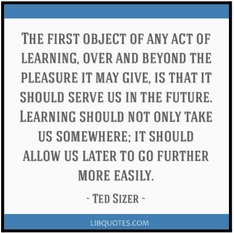
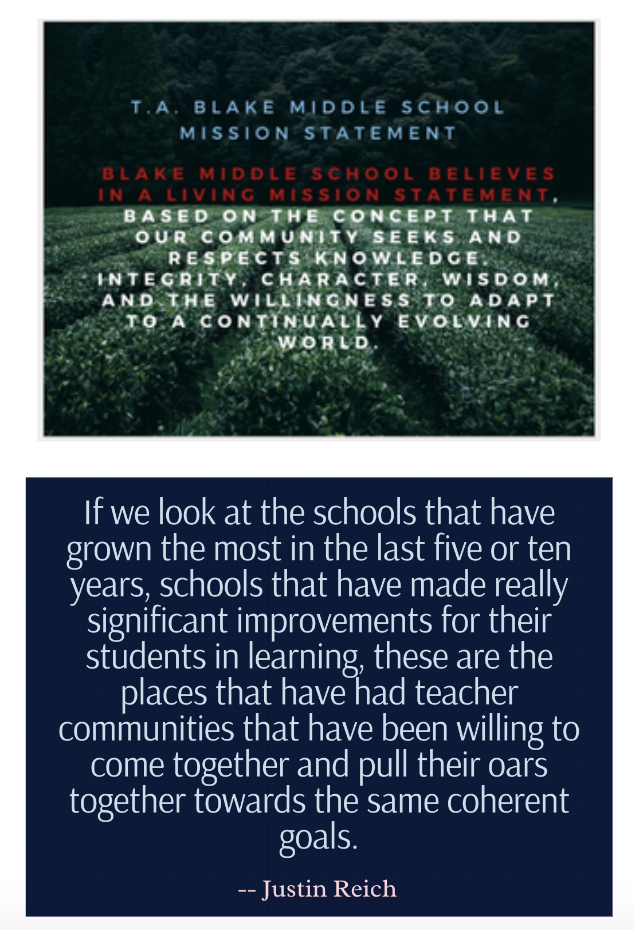
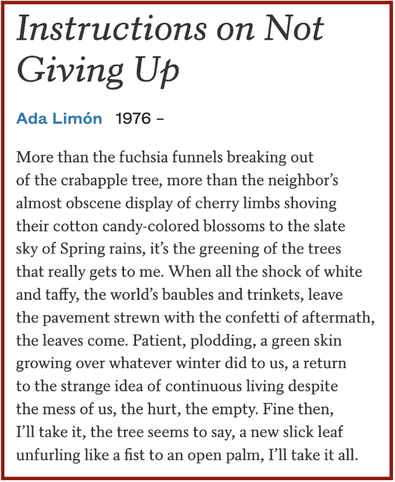
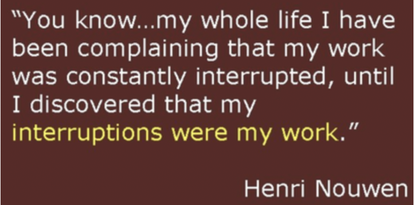
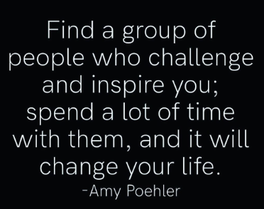
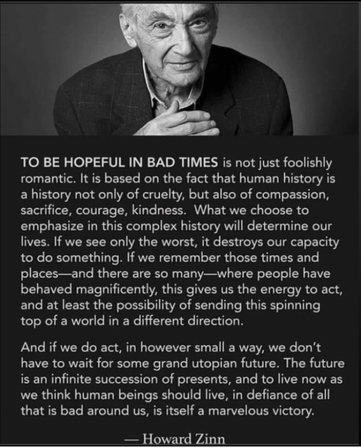
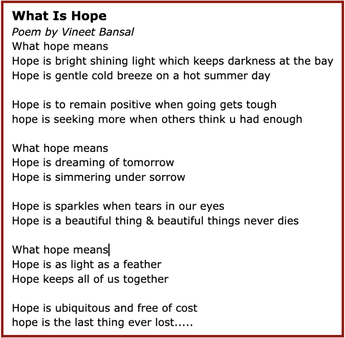
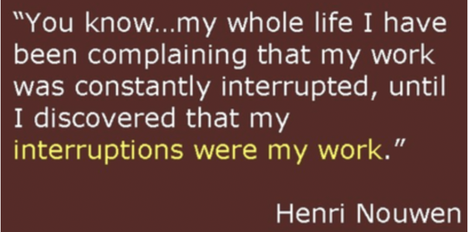
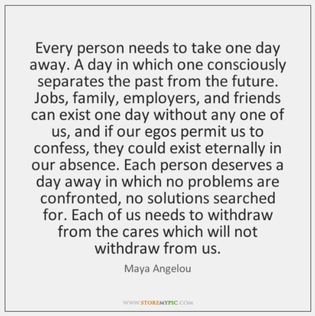
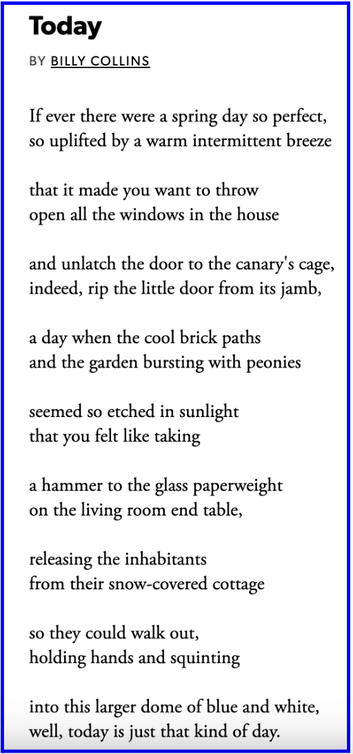
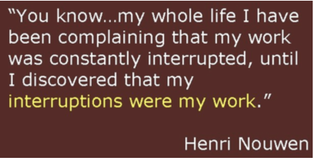
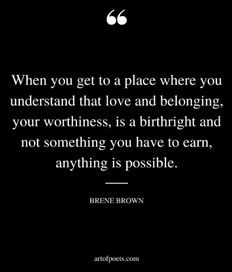
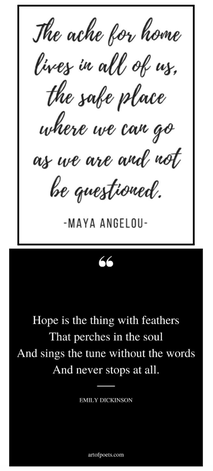
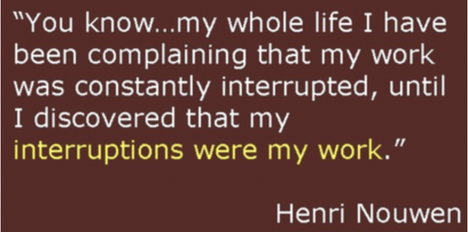
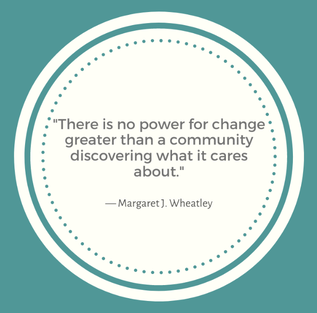
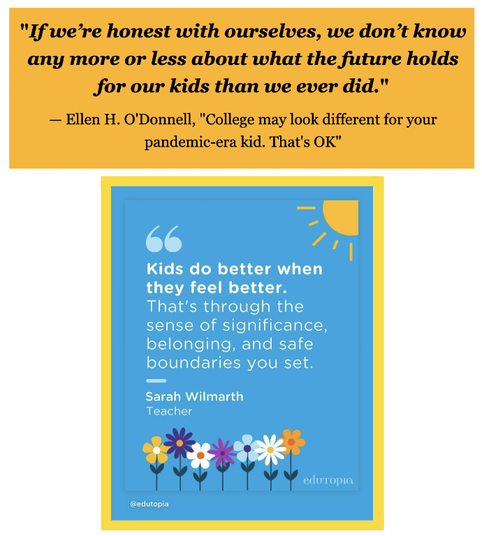
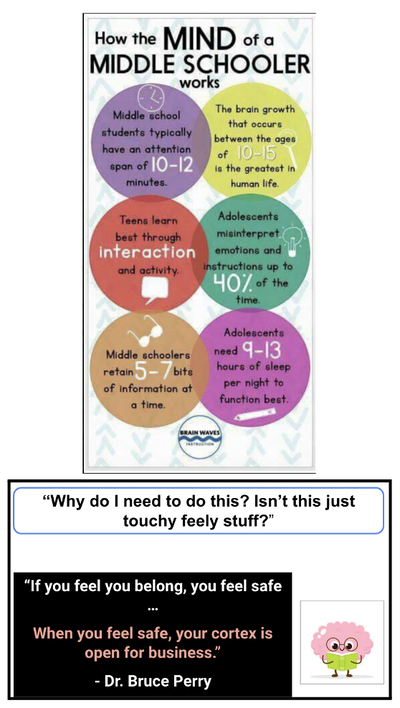
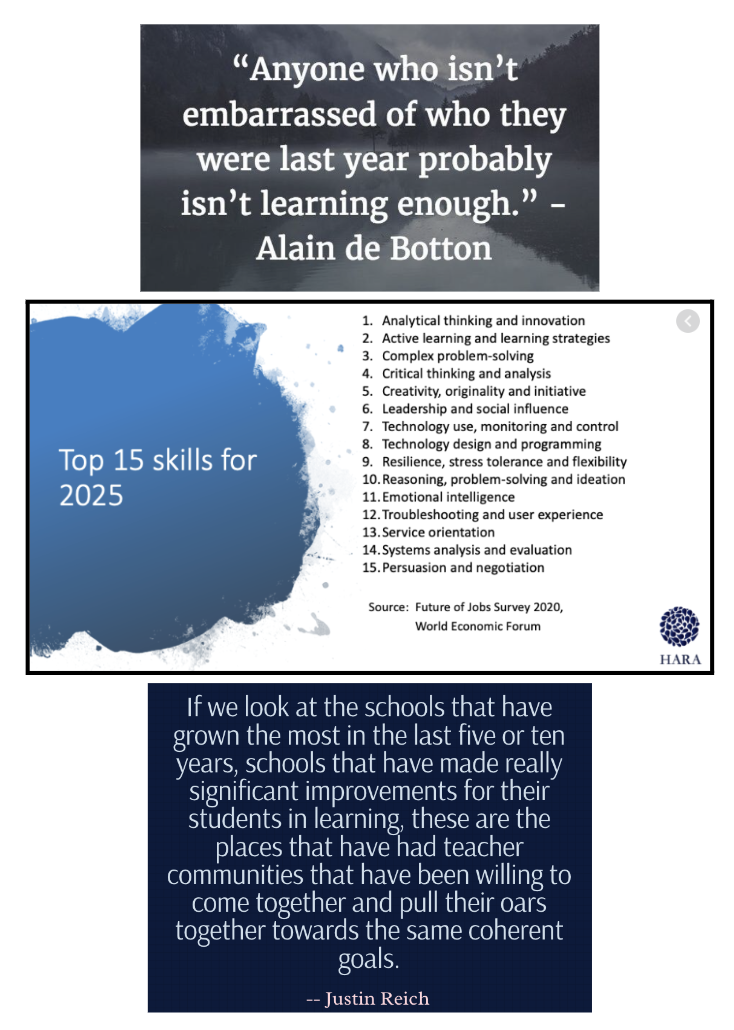
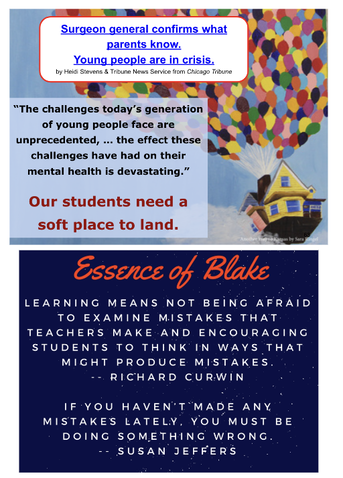
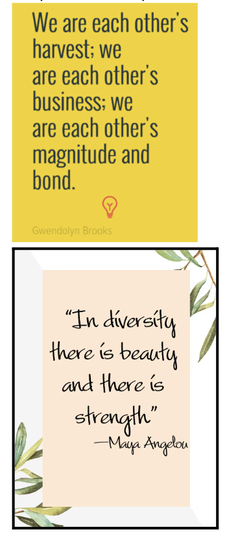
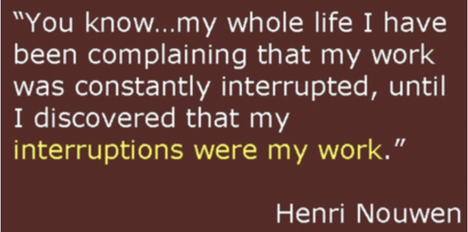
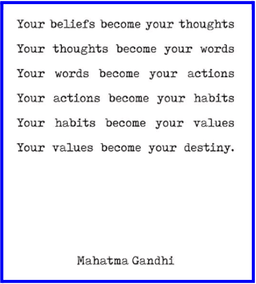
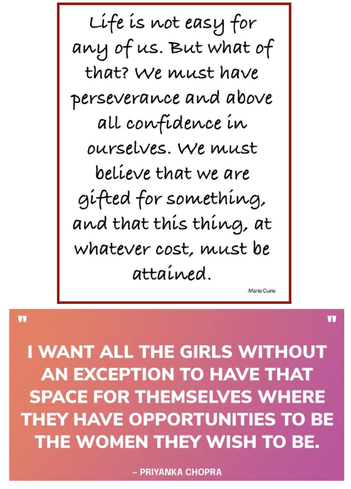
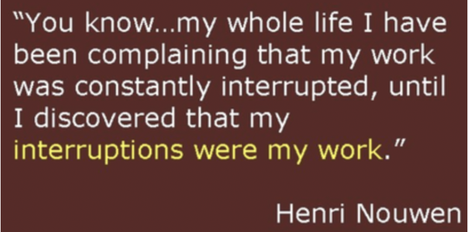
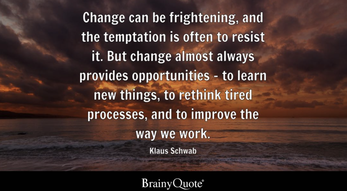
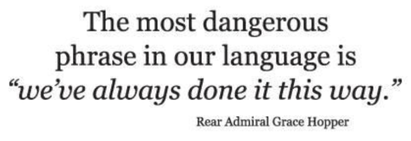
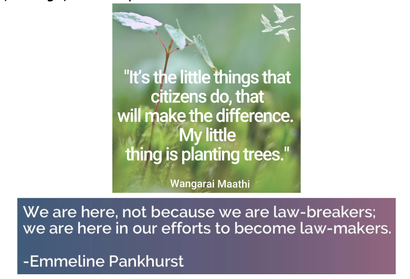
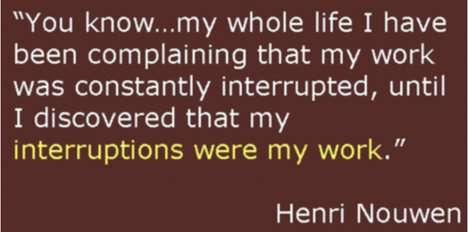
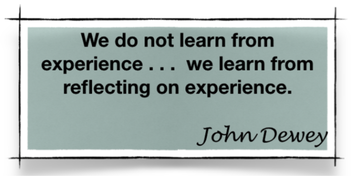
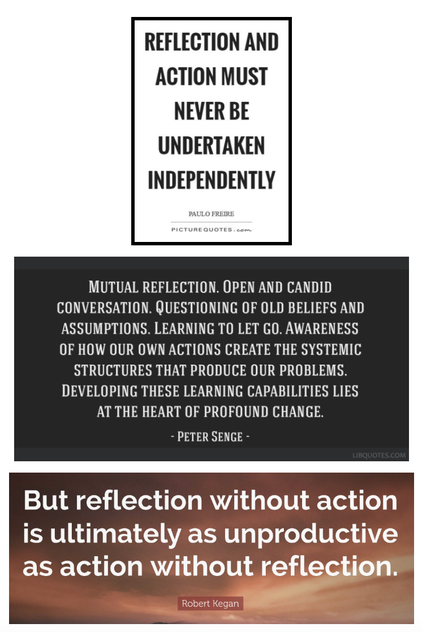
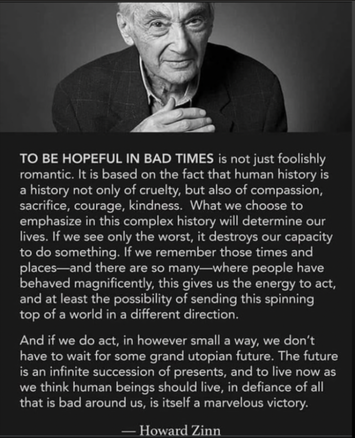
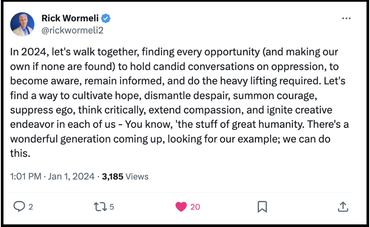
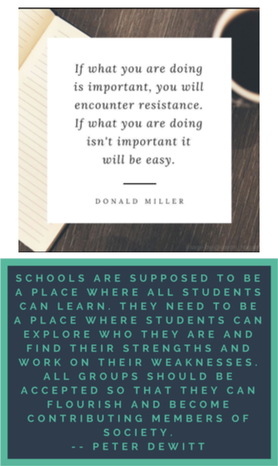
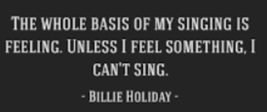
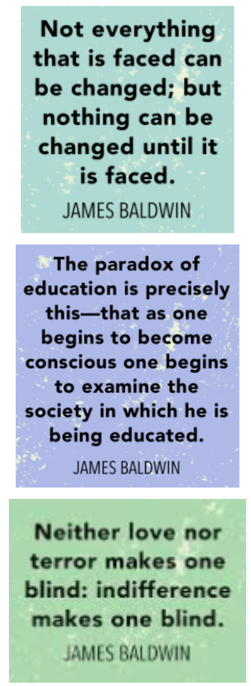
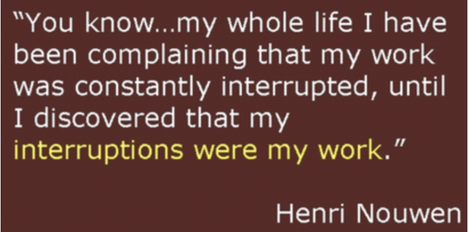
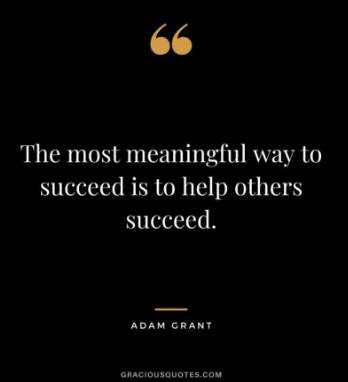
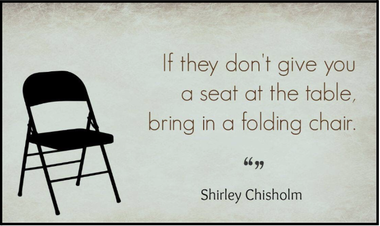
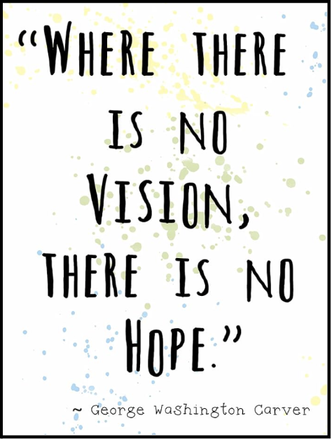
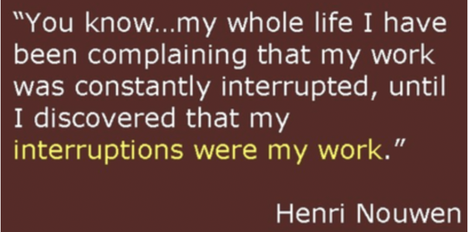
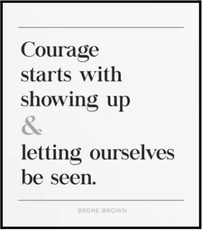
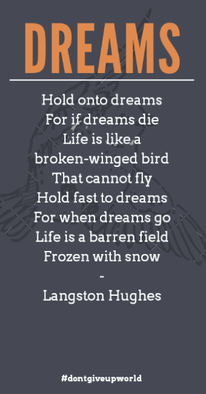
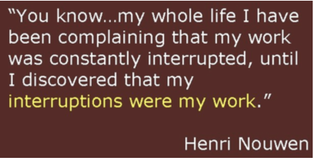
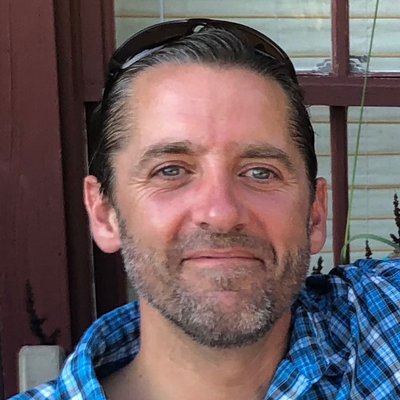
 RSS Feed
RSS Feed
